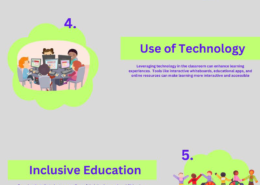How can the increasing prevalence of remote work and virtual communication possibly affect interpersonal relationships and mental health in the long term?
To maintain mental health while studying, prioritize regular breaks to avoid burnout. Practice mindfulness or meditation to reduce stress and stay grounded. Stay organized with a study schedule, but be flexible. Most importantly, incorporate physical activity to boost mood and energy levels. EnsureRead more
To maintain mental health while studying, prioritize regular breaks to avoid burnout. Practice mindfulness or meditation to reduce stress and stay grounded. Stay organized with a study schedule, but be flexible. Most importantly, incorporate physical activity to boost mood and energy levels. Ensure adequate sleep, as it’s crucial for cognitive function. Stay connected with friends or a support network to combat isolation. Balance study time with hobbies or activities you enjoy. Finally, maintain a healthy diet to support overall well-being.
See less


The increasing prevalence of remote work and virtual communication can have mixed effects on interpersonal relationships and mental health in the long term. On the positive side, remote work offers flexibility, reducing stress from commuting and allowing for a better work-life balance. This flexibilRead more
The increasing prevalence of remote work and virtual communication can have mixed effects on interpersonal relationships and mental health in the long term.
On the positive side, remote work offers flexibility, reducing stress from commuting and allowing for a better work-life balance. This flexibility can improve mental health by providing more time for family, hobbies, and rest. Virtual communication tools also keep teams connected, enabling collaboration regardless of location.
However, there are potential downsides. Reduced face-to-face interactions can lead to feelings of isolation and loneliness, as virtual communication often lacks the depth and nuance of in-person conversations. This can weaken workplace relationships and diminish the sense of community and support among colleagues. Over time, such isolation may contribute to increased anxiety, depression, and burnout.
To mitigate these effects, it’s important to maintain regular social interactions, establish clear work-life boundaries, and prioritize mental health. Balancing remote work with opportunities for in-person connections can help preserve relationships and promote long-term mental well-being.
See less